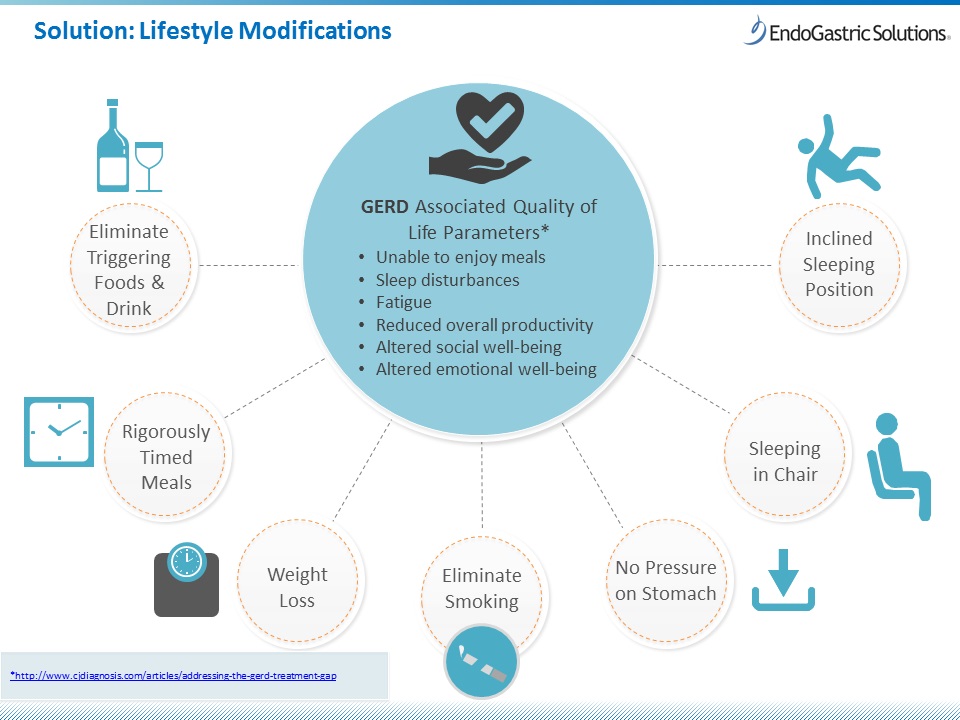For mild GERD sufferers with infrequent symptoms of reflux, simple dietary and lifestyle changes may be enough to provide some relief. For this reason diet and lifestyle changes are the most common first step when exploring treatment options.
The Antireflux Diet: Control GERD Symptoms with Food and Drink Choices
There is ample research suggesting simple dietary changes GERD sufferers can make to alleviate symptoms. The following recommendations for an antireflux diet may provide relief from GERD:
- Watch Your Diet: Be conscious of which types of foods and beverages seem to agitate your symptoms most often, and monitor your consumption of them. Avoid foods that trigger symptoms. Some common reflux triggers include coffee, tea, or carbonated beverages; fatty, fried or spicy foods; and other foods such as citrus fruits, tomatoes, garlic, onions, peppermint, or chocolate.
- Eat Smaller Meals More Frequently: Larger meals take longer to empty from your stomach and may apply extra pressure on the valve between the stomach and the esophagus.
- Avoid Alcohol: Researchers have found alcohol, especially white wine and beer, to induce reflux.
Lifestyle Changes for Managing GERD
Some suggested practices to relieve heartburn or acid reflux may include the following:
- Watch Your Weight: Excess weight can potentially distort esophageal valve anatomy and subsequently cause reflux.
- Avoid Reclining Within Three Hours of Eating: When you lay flat, gravity is no longer keeping stomach contents in place, making it easier for your stomach acid to flow up and reach the esophagus or throat.
- Raise the Head of Your Bed by Six to Eight Inches: According to research, when you rest at a slight incline, gravity can work in your favor to reduce nighttime reflux episodes.
- Refrain from Smoking: Studies show that nicotine weakens the muscle that controls the valve between the stomach and the esophagus.
- Reduce Pressure on Your Stomach: Too much pressure can squeeze your stomach and increase your GERD-related symptoms. You can reduce pressure on the stomach by maintaining a healthy weight, eating smaller meals, and wearing loose-fitting clothes.
Before exploring other treatment options, try dietary and lifestyle changes as a first step in managing reflux. It is important to remember GERD is a chronic condition that can affect each person differently. Its treatment involves a step-wise approach with guidance from a medical professional based on the severity of symptoms.
Having reflux from time to time is normal; having it interrupt your life is not. If you suffer symptoms of reflux twice or more per week, you may have GERD. Take the GERD-HRQL survey if you suspect a problem and bring the results to a TIF-trained doctor for a GERD evaluation.


